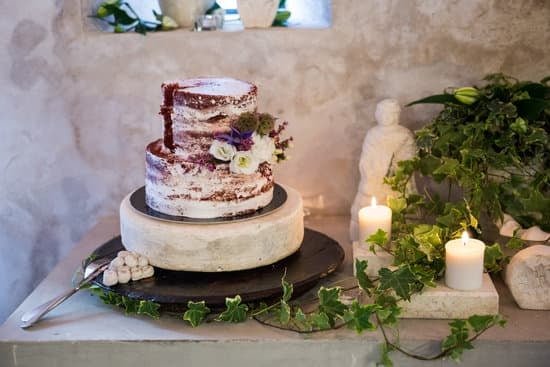Planning a wedding is an exciting and joyous time in one’s life, filled with anticipation and hope for the future. One important aspect of this process is ensuring that wedding invitations are sent out in a timely manner. This article will explore the traditions, etiquette, and timeline associated with sending out wedding invites, as well as provide helpful tips for determining the ideal timeframe.
The historical significance of wedding invitations cannot be understated. They have long been an essential element of wedding tradition and etiquette, serving as a formal announcement of the upcoming nuptials. Understanding the origins and importance of these invitations can help couples appreciate their role in setting the stage for their special day.
Setting a timeline for planning wedding invitations is crucial to ensure everything runs smoothly. From save-the-dates to formal invitations, each step in the process requires careful consideration and attention to detail. By understanding when to start thinking about wedding invites, couples can alleviate unnecessary stress and focus on creating beautiful stationery that reflects their unique style.
Traditions and Etiquette
The historical significance of wedding invitations cannot be understated, as they have been a key element of wedding traditions and etiquette for centuries. The practice of formal wedding invitations dates back to the Middle Ages, when guests would receive hand-written notes from the bride’s family requesting their presence at the ceremony. These invitations were considered a sign of respect and an indication of the family’s social status, making them an important part of wedding customs.
Origins of Wedding Invitations
The origins of wedding invitations can be traced back to the times when printed materials became more accessible and affordable. As literacy rates increased, people began to use written communication for social events, including weddings. This led to the development of formal wedding invitations as a way to officially invite guests to a couple’s nuptials.
Importance in Wedding Tradition and Etiquette
Wedding invitations have long been associated with tradition and etiquette, serving as a formal way to request the presence of loved ones at such a significant event. The act of sending out formal invitations is a display of respect not only for the guests but also for the sanctity and importance of the marriage ceremony itself.
In addition, adhering to proper invitation etiquette demonstrates an understanding and appreciation for social customs, making it an essential part of wedding planning. Whether it’s through intricate calligraphy or beautiful designs, wedding invitations continue to be an enduring symbol of respect and formality in celebrating one’s special day.
Today, while many aspects of weddings have evolved with modern trends and technology, traditional sentiments surrounding wedding invitations remain strong. Couples continue to honor these customs by carefully selecting and sending out their formal invites in accordance with time-honored practices – marking another reminder that traditions are timeless when it comes to celebrating unions between families and friends.
Timeline
It’s never too early to start thinking about your wedding invitations, as they play a crucial role in setting the stage for your big day. Planning ahead and sending out your invitations in a timely manner can help ensure that your guests have plenty of notice and can make arrangements to attend. Here’s a closer look at when to start thinking about your wedding invitations and the importance of setting a timeline for the process.
Setting a Schedule
When it comes to planning your wedding invitations, it’s essential to establish a clear timeline for each step of the process. This includes deciding when to send out save-the-dates, when to design and order your formal invitations, and ultimately, when to mail them out to your guests. By setting specific dates for each task, you can stay organized and ensure that everything is completed with plenty of time to spare.
The Early Bird Gets the Worm
As a general rule of thumb, it’s recommended to begin thinking about your wedding invitations at least six to eight months before your big day. Starting early allows you to explore different design options, customize details like colors and fonts, and address any potential issues that may arise along the way. Keep in mind that some couples opt for destination weddings or holiday weekend ceremonies, which may require even more advanced planning for their invitations.
Finding Your Perfect Timing
The ideal timeframe for sending out formal wedding invitations typically falls between six to eight weeks before the wedding date. However, this window can vary depending on certain factors such as guest travel schedules, holiday weekends, or other events that may impact attendance. It’s important to consider these variables when determining the best timing for sending out your invitations. Ultimately, giving yourself enough time will ensure that your guests receive their invites with ample notice and can RSVP accordingly.
Save-the-Dates
When it comes to planning a wedding, setting the stage with save-the-date cards is an important first step. These cards are typically sent out before formal wedding invitations and serve as a prequel to the main event.
The purpose of save-the-dates is to give your guests a heads-up about your upcoming nuptials, ensuring they mark their calendars well in advance. Here’s everything you need to know about when to send out these important pre-invitations:
- Timing: Save-the-dates are typically sent out 6 to 8 months before the wedding date. This allows your guests ample time to plan for travel, accommodations, and any other arrangements they may need to make. For destination weddings or events that fall on holiday weekends, consider sending out save-the-dates even earlier to give guests plenty of notice.
- Information: While save-the-dates are less detailed than formal invitations, they should still include key information such as the couple’s names, the wedding date (and sometimes location), and a note letting guests know that a formal invitation will follow. Including a wedding website URL can also be helpful if you have additional details or travel information for your guests.
- Flexibility: Save-the-dates can be more informal and creative than traditional invitations, allowing you to showcase your personality as a couple. Whether you opt for custom photo cards or unique designs that reflect your wedding theme, save-the-dates offer a fun opportunity to build excitement for your big day.
By understanding the significance of save-the-dates and keeping these timelines in mind, you can ensure that your guests receive ample notice about your special day and have everything they need to join in on the celebration.
Formal Invitations
Save-the-dates and formal wedding invitations serve different purposes in the wedding planning process. Understanding the distinction between these two types of invites is crucial for creating a well-organized and timely invitation strategy.
When it comes to save-the-dates, their primary purpose is to give guests a heads-up about your upcoming wedding date. They are especially important for destination weddings or holiday weekends when guests may need to make travel arrangements well in advance. As a general rule of thumb, save-the-dates should be sent out six to eight months before the wedding, depending on the specific circumstances of your event.
On the other hand, formal wedding invitations provide guests with detailed information about the event itself, including the date, time, location, and RSVP instructions. They also set the tone for the wedding day by showcasing the overall theme or style of the celebration.
Formal invitations should typically be sent out six to eight weeks before the wedding date to give guests enough time to respond and make any necessary accommodations. However, for destination weddings or holiday weekends, it’s wise to send them out even earlier.
When considering both save-the-dates and formal invitations, it’s essential to keep track of important dates related to your wedding timeline and budget accordingly. Planning ahead will ensure that you don’t overlook any details or miss crucial deadlines as your special day approaches.
- Save-the-dates: 6-8 months before the wedding
- Formal Invitations: 6-8 weeks before the wedding (or earlier for destination weddings or holiday weekends)
The Magic Number
When it comes to planning your wedding, one of the most important aspects to consider is when to send out your wedding invitations. The timing for sending out these invites can vary based on different factors such as the location of your wedding, the time of year, and whether or not there are any holidays that may impact guest availability.
It’s essential to carefully consider these factors to ensure that your guests have enough time to make arrangements to attend your special day.
For most weddings, the ideal timeframe for sending out wedding invitations is six to eight weeks before the wedding date. This gives your guests enough time to RSVP and make any necessary travel arrangements if needed.
However, if you are planning a destination wedding or getting married during a holiday weekend, it’s recommended to send out your invitations even earlier, around three months in advance. This extra time allows guests to plan their attendance and make travel arrangements if needed.
It’s also important to keep in mind that setting the right timeframe for sending out wedding invitations can help alleviate stress as the big day approaches. By giving yourself enough time before the wedding, you can ensure that you have an accurate headcount for catering and seating arrangements.
Additionally, some guests may need extra time to request time off from work or secure childcare, so sending out invitations with plenty of notice shows consideration for their schedules and commitments. By carefully considering these factors, you can set the perfect timeline for sending out your wedding invitations and ensure that everything runs smoothly leading up to your special day.
Considerations
When it comes to planning a wedding, one of the most important tasks is sending out the invitations in a timely manner. The big question that often arises is, “when do wedding invites need to be sent out?” There are several factors that can impact the timeline for sending out your wedding invitations, and it’s essential to consider these when planning your special day.
One important factor to consider when deciding when to send out your wedding invitations is the location and travel requirements for your guests. If you’re having a destination wedding or have many out-of-town guests, it’s crucial to provide them with ample time to make travel arrangements.
In these cases, it’s recommended to send out save-the-date cards at least 6-8 months in advance, followed by formal invitations 2-3 months before the wedding date.
Another consideration is holiday weekends and major events happening around the same time as your wedding. If your celebration falls on a long weekend or coincides with a major holiday, it’s best to give your guests as much notice as possible. In these instances, sending out save-the-dates up to a year in advance can help ensure good attendance at your wedding.
It’s also important to remember that many of your guests may have busy schedules and commitments, so providing them with plenty of notice will increase the likelihood of their attendance on your special day. Regardless of all factors involved its recommended sending invitations at least ( How many days prior does this mean?). Clearly setting RSVP deadlines will ensure enough preparation time for other aspects such as seating arrangements and final headcounts for catering purposes.
| Factors Impacting When Wedding Invitations Are Sent | Recommended Notice Prior to Sending Formal Invitations |
|---|---|
| Destination weddings or many out-of-town guests | 6-8 months |
| Holiday weekends or major events | Up to a year in advance |
Reminder
Setting RSVP deadlines and following up as the wedding approaches is a crucial aspect of the wedding planning process. With so many details to attend to, it’s understandable that some couples may overlook the importance of this step. However, ensuring that you have an accurate headcount of guests attending your wedding is essential for various reasons.
First and foremost, setting RSVP deadlines allows you to properly plan for the number of guests who will be in attendance. This includes catering arrangements, seating assignments, and overall logistics for the event. Without an accurate count, you run the risk of not having enough food or seating for your guests, which can create unnecessary stress on your special day.
Following up with guests as the wedding date approaches is equally important. Not everyone will remember to RSVP by the deadline, and some may need a gentle reminder. By reaching out to those who have not responded, you can ensure that no one is accidentally left off the guest list. Additionally, you may uncover unforeseen dietary restrictions or other special accommodations that need to be addressed before the big day.
Lastly, it’s important to stay organized and keep track of all RSVPs as they come in. Having a clear understanding of who will be attending your wedding allows for better communication with vendors and ensures that everything runs smoothly on the day of the event. Remembering to follow up with guests demonstrates professionalism and consideration for their attendance at your special celebration.
Conclusion
In conclusion, when do wedding invites need to be sent out? Planning a wedding is an exciting time, and sending out the invitations in a timely manner is crucial for ensuring that your guests have ample notice to prepare for the special day. The historical significance of wedding invitations and the etiquette surrounding them emphasize the importance of this tradition in announcing and celebrating a marriage.
Setting a timeline for your wedding invitations is essential, from sending out save-the-dates as a prequel to the formal invitations, to understanding the ideal timeframe for sending out those formal invites. Factors such as guest travel and holiday weekends should also be taken into consideration when determining when to send out wedding invitations.
Ultimately, setting clear RSVP deadlines and following up with guests as the wedding approaches plays a key role in ensuring an accurate headcount and smooth seating arrangements. In wrapping up this discussion, it’s important to recognize that wedding invitations are more than just pieces of paper – they set the stage for your special day and contribute to creating an unforgettable experience for you and your guests.
Frequently Asked Questions
Is 3 Months Too Early to Send Out Wedding Invitations?
Sending out wedding invitations 3 months in advance is actually considered ideal, especially if you have guests coming from out of town or if your wedding is scheduled during a busy time of year. This gives people plenty of time to make travel arrangements and RSVP.
It also allows you to finalize your guest list and make any necessary adjustments well before the big day.
How Soon Before a Wedding Do You Send Out Invitations?
Traditionally, wedding invitations are sent out 6-8 weeks before the wedding date. This timeline provides guests with enough notice to make travel plans and RSVP by the requested date. However, if your wedding falls on a popular holiday weekend or if many of your guests will need to travel long distances, sending them out even earlier is advisable.
Is 4 Weeks Too Late to Send Out Wedding Invitations?
While it’s generally recommended to send out wedding invitations 6-8 weeks before the big day, sending them 4 weeks in advance is cutting it close but not necessarily too late. If you’re in a situation where you need to wait until closer to the wedding date due to finalizing details or for other reasons, be prepared for a quicker turnaround on RSVPs and some last-minute logistical challenges.
That being said, it can still be manageable as long as you and your guests are flexible.

I have been involved in marriages for over 20 years helping couples and singles understand more about them.





